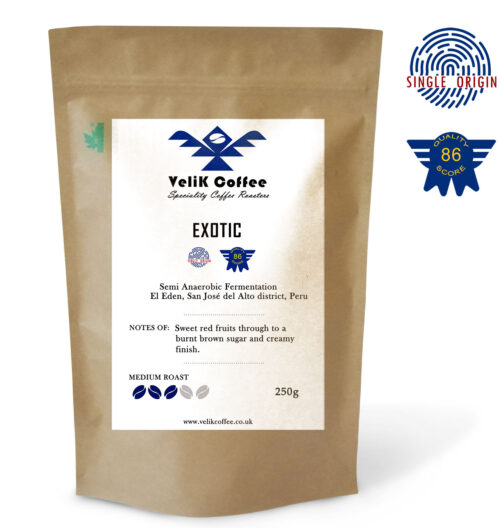Your basket is currently empty!

Free Delivery over £50
BRAZIL CO2 DECAF – Brazilian Single Origin Arabica Beans – Medium-Dark Roast Coffee
☕FLAVOUR: Dark Chocolate & Berry Notes with a Rich Aroma
☕ROAST LEVEL: Medium-Dark
☕BODY: Medium, smooth, and well-rounded
☕ACIDITY: Balanced & pleasant
☕VARIETY: 100% Arabica beans
☕BEST BREWING: Espresso, Moka Pot, French Press, AeroPress
☕Chemical-Free Decaffeination
☕100% Eco-friendly & Sustainable Coffee Packaging 🌱
Grown in Minas Gerais, Brazil, our Brazil CO₂ Decaf coffee is naturally decaffeinated using the gentlest method possible – the Natural Liquid Carbon Dioxide (CO₂) process.
This chemical-free method preserves the coffee’s flavour characteristics while effectively removing 99.9% of caffeine.
Experience a smooth and rich coffee with a medium body, perfectly balanced acidity, and indulgent flavour notes of dark chocolate and ripe berries – the ultimate choice for coffee lovers seeking depth and quality.
You May Also Like
BARBOSA – Brazilian Single Origin Arabica Beans – Medium-Dark Roast Coffee
£9.94 – £19.88BATIDA NERO – Peruvian Single Origin Arabica Beans – Medium-Dark Roast Coffee
£11.48 – £22.96CONFECTIONARY CHOCOLATE – Colombian Single Origin Arabica Beans – Medium-Dark Roast Coffee
£13.86 – £27.72EXOTIC – Peruvian Single Origin Arabica Beans – Medium Roast Coffee
£11.38 – £22.76MATUNDA – Ethiopian Single Origin Arabica Beans – Medium-Dark Roast Coffee
£11.94 – £22.38










Nina Kerr –
Clean, balanced and doesn’t feel like decaf at all.